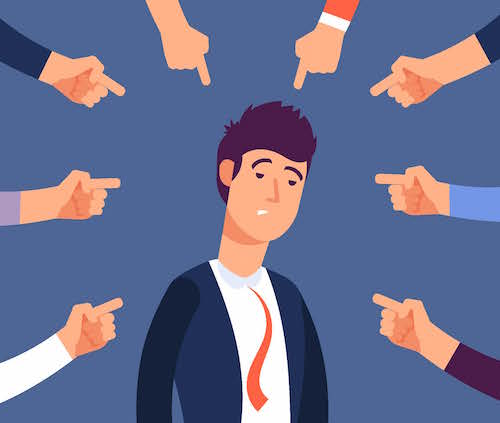March 16, 2020
By Brad Much
 Before I was diagnosed with bipolar disorder, I was struggling to function. I had no idea what was wrong with me. I never considered that I was experiencing bipolar depression because I associated being depressed with being sad. Several medical doctors ran tests and couldn’t find anything out of the ordinary.
Before I was diagnosed with bipolar disorder, I was struggling to function. I had no idea what was wrong with me. I never considered that I was experiencing bipolar depression because I associated being depressed with being sad. Several medical doctors ran tests and couldn’t find anything out of the ordinary.
After a period of severe anxiety, I turned to my employer’s employee assistance program (EAP). The EAP’s telephone representative diagnosed me after a short interview. Then she connected me with psychiatrist and therapist. Instead of conducting an independent evaluation to reach a diagnosis, they treated me for that diagnosis — which I now know was incorrect.
I was struggling without the correct medication and diagnosis. Eventually management learned that I was in the care of a psychiatrist. Even though I had recently successfully completed a performance plan, they dismissed me for an instance of “poor judgement.”
Eight months later, my symptoms became more severe, and I was hospitalized involuntarily. This is when I finally received the correct diagnosis.
I Was Fired
I got another job as the project manager to launch a new division within a different company. The role quickly expanded, and I was given the title “Operations & Program Manager.” I received praise and multiple bonuses for my good work.
I finally felt comfortable enough to disclose my diagnosis. Things then changed quickly. My managers piled on the work and I was blamed for things I had nothing to do with. Several months later, I was fired due to a “policy violation” for a policy they had never enforced before.
I Was Called “Dangerous”
I was living in a rented condo that I shared with my late partner before his recent death. I confided in one of my neighbors about my condition and the symptoms I was experiencing. I later learned that she had shared that information with a couple who lived upstairs. The couple eventually convened a meeting to convince everyone that I needed to be forced out because I was dangerous.
They tried to scare me off by telling me that my condo was wired for surveillance, the building was haunted and that criminals were coming for me. When that didn’t accomplish anything, they started calling the police with false or exaggerated reports of my behavior, saying they were terrified of me.
When the police would find me, I was always calm and collected. Even though officers never saw me say or do anything that suggested I would harm anyone, they sided with the neighbors because so many of them were calling about me. I had never even talked to any of these people. But without my partner, I had no one to attest that they were harassing me.
I was taken for involuntary treatment five times in five weeks. I lost a job because I couldn’t explain all the sudden hospitalizations. And without income, I couldn’t pay rent, and my landlord evicted me. I call this creative discrimination.
I Was Evicted
After being evicted from the condo which I considered home, and without income, I could only afford transitional housing or sober living. Whenever the managers or other tenants realized I had bipolar disorder, I would be asked to take drug tests and receive visits from the police to check on the state of my mental health.
One manager, who had directed other residents to contact the police if they thought I was behaving oddly, had a counselor from a local mental health clinic waiting to talk to me when I returned home one day. In her opinion, someone with bipolar disorder should be hospitalized. In one instance, they tried to evict me for “refusal to comply with policies.” In another instance, they packed up my belongings while I was hospitalized, leaving me to find other housing upon discharge.
These experiences caused a great deal of instability in my life, which took several years to recover from. Because of the resulting depression, my doctor placed me on long-term medical leave until I was strong enough to return to work starting part-time.
I am now transitioning into advocacy for other people with mental illness so they can avoid similar injustices. While discrimination took a toll on me and my life, now that I have survived these experiences and the aftermath, I feel stronger than ever.
Brad Much, a resident of Long Beach, CA, has worked for more than 15 years in strategy and program management. Using his twenty years of experience living mental illness, he is working to launch the Belong Network to address these types of issues working in conjunction with groups like NAMI.
We’re always accepting submissions to the NAMI Blog! We feature the latest research, stories of recovery, ways to end stigma and strategies for living well with mental illness. Most importantly: We feature your voices.
Check out our Submission Guidelines for more information.
Submit To The NAMI Blog
We’re always accepting submissions to the NAMI Blog! We feature the latest research, stories of recovery, ways to end stigma and strategies for living well with mental illness. Most importantly: We feature your voices.
LEARN MORE